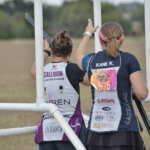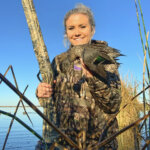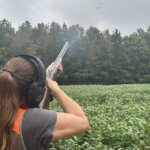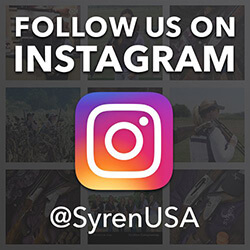In this three-part series, we explore the journey of three young women, from their humble beginnings in the early part of their shooting careers, to getting serious on the competition circuit and getting scouted, to picking the best school to fit their desired goals. These young women balance a heavy college curriculum with a rigorous team schedule and make the most of their time as collegiate athletes. Whether you are looking to follow a similar path and compete in college, or just curious to learn more about this world, follow along as we delve into the stories of these Syren athletes and their unique journeys.
First up in our series is one of Syren’s newest ambassadors, Emily Miller. Emily is currently a student at Fort Hays State University. Her main discipline is sporting clays, and when she’s not balancing her schoolwork while earning her degree, she enjoys going to as many NSCA (National Sporting Clays Association) tournaments as she can. Emily has earned a number of accolades since beginning to shoot competitively in 2018, including winning numerous Lady Championships in Sporting Clays, FITASC, American Field Sporting, 5 Stand and earning a spot on the All-American Junior 1st Team in 2022. On the collegiate level, Emily is just as fierce, taking HOA (High Overall) and Lady Championships at several competitions across the country during her first three seasons.

Getting Started – The Early Stage
I understand your journey into the shotgun sports got started when you were about 15, after your Dad started a 4H club in your hometown. Can you tell us a little more about what it was like to first get into the sport and some of the most memorable experiences you had during that time in your life?
We started out with one trap thrower sitting behind a pallet to learn to shoot trap. Once we understood shooting a little bit, they introduced us to skeet, which we had to drive around an hour in order to go practice skeet because at that time there was no range. After a year or so, some of the parents and coaches decided to take it upon themselves to build a trap and skeet range for us kids so we could learn more about the sports. We started going to qualifiers to get a feel for the competition environment and that is when our team really started to take off.
Some of my favorite memories are the simple ones of making friends with people on the team and learning alongside them. Being able to see our team making huge accomplishments and the smiles on our faces when our hard work paid off and we ran our first 25 straight in trap and skeet.
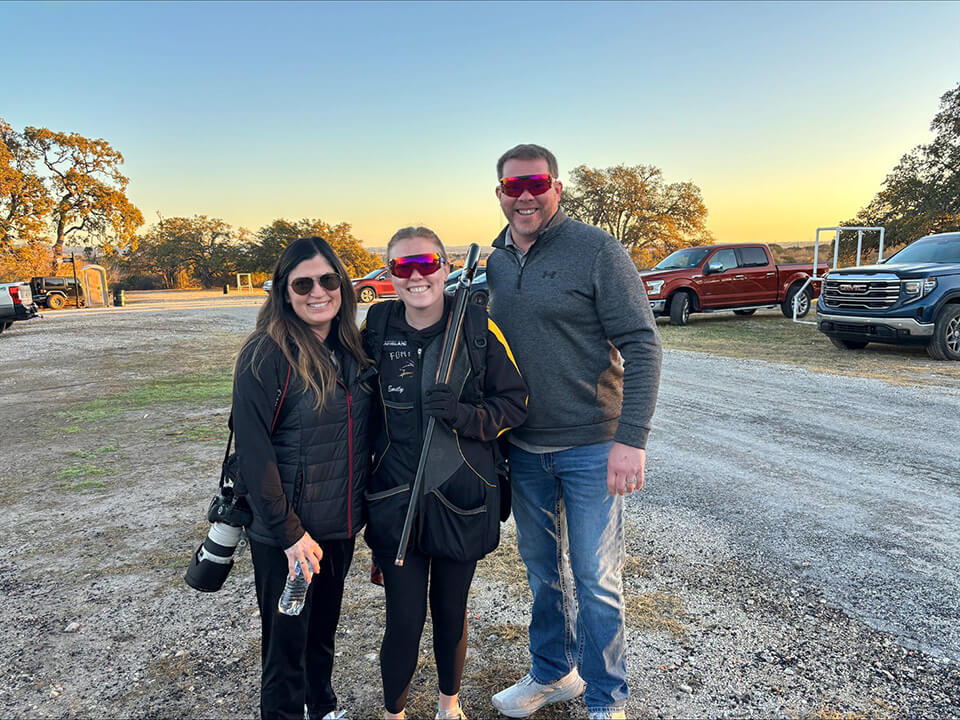
As is the case with most people, once they find something they are passionate about, there is a natural transition from a casual hobby to a more serious commitment. At what point did you find yourself making that transition and how did you know that this was something you wanted to get serious about?
I have never been super athletic, but when I was a freshman in high school I ran cross country and that was my main focus at the time. Toward the end of the season, I ended up getting injured during a meet and I could not run cross country anymore. After that was when I decided to give shooting shotguns a real chance. It wasn’t until a couple years in when I really started to get serious about it. In 2020, I went to my first NSCA registered shoot and realized it was something that I could really get into. One of my 4-H coaches at the time invited my dad and me to the 2021 NSCA US Open with him; we ended up going with him and having a great time. After that is when the “addiction” started and I have been committed to shooting ever since.
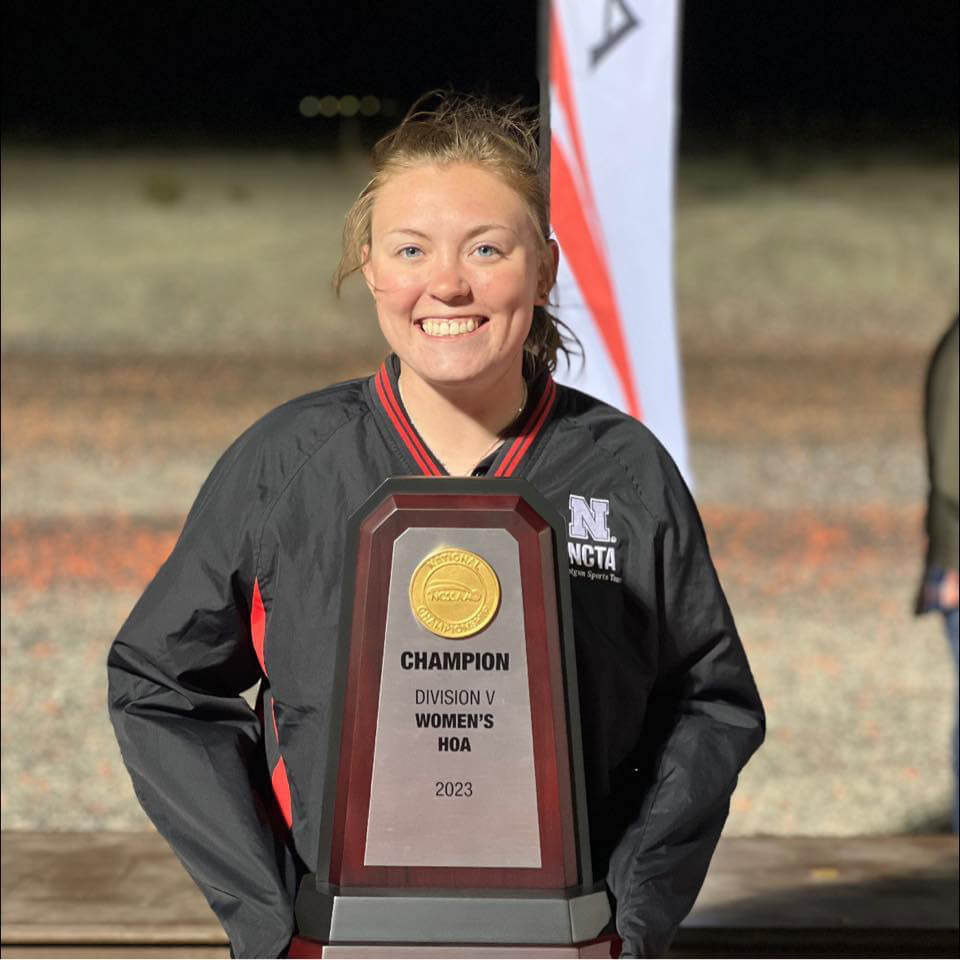
How important is the equipment you use to compete at the highest level? And what are some of the most important factors in choosing the tools you use to compete with?
The equipment that you compete with is so important. Gun fit is super important and is sometimes a struggle, especially for women when most guns are basically designed to fit a male. If your gun does not properly fit you, it will be hard to get to where you want to be with your shooting at a fast rate. Shooting glasses are also important; everyone has different preferences because of eye colors and such. Making sure that you know what lenses and such that you like for certain conditions will help.
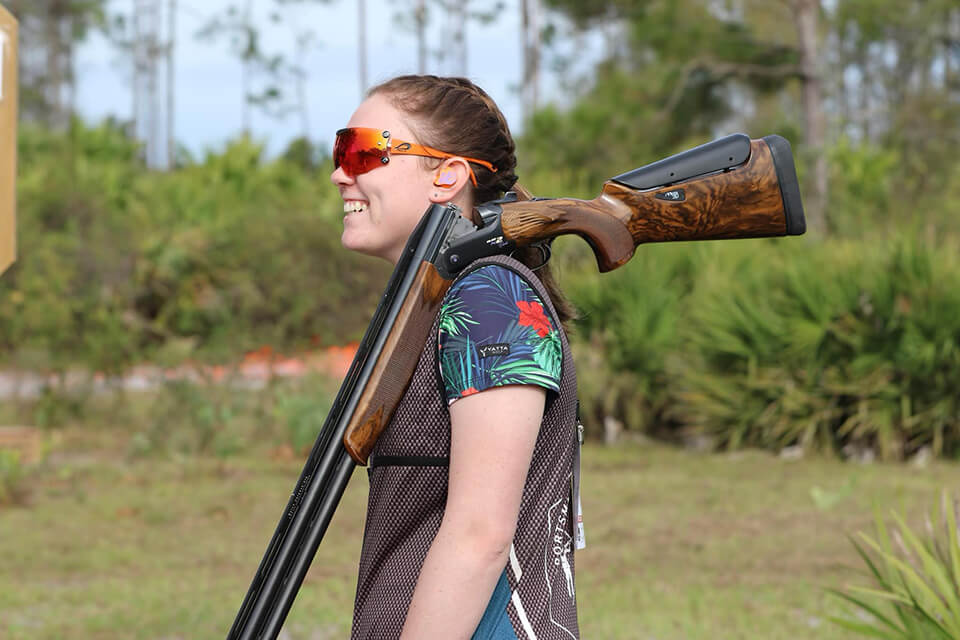
Getting Serious – Development & College Selection Process
At what point did you realize the shooting sports were something you could continue on with beyond the 4-H program and compete at a collegiate level?
I didn’t know that shotgun sports were at colleges until one of my 4-H teammates, who was a year above me, went to go shoot in college. It wasn’t until I was a senior in high school, around the same time that I got serious about shooting, that I decided I wanted to try competing at a collegiate level.
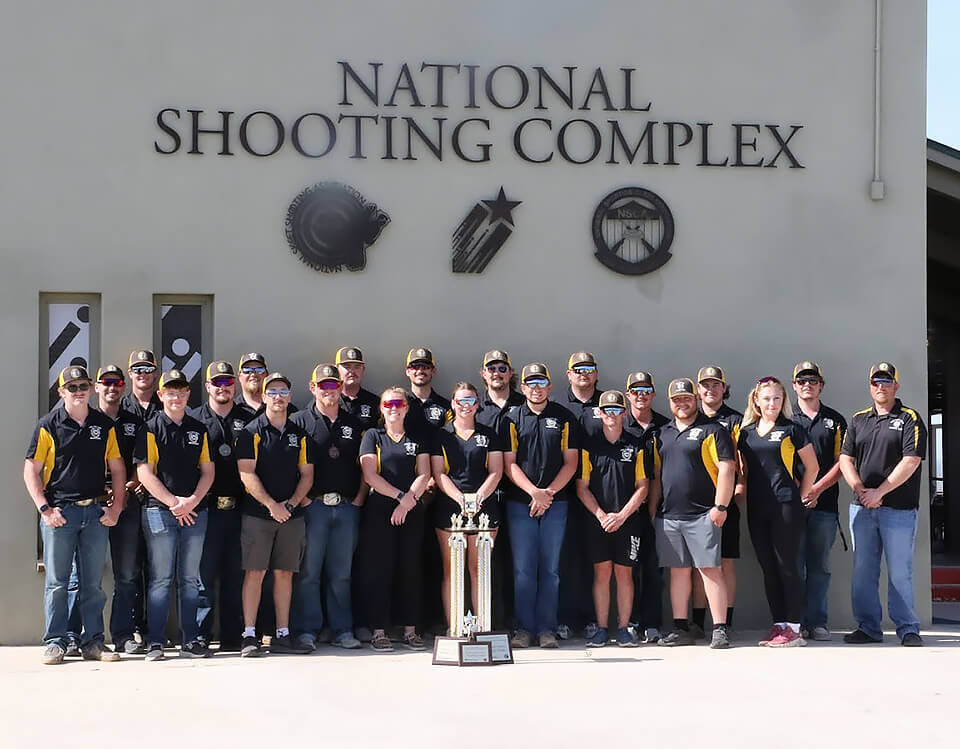
When choosing the college you wanted to attend was the shooting team a factor? Tell us a bit about the recruiting process and how you made the team.
I was deciding between two colleges that had my degree I wanted to study and ultimately having a shooting team was the deciding factor. I was big into show choir in high school and the first college that I considered would be down that path because they did not have a shooting team. The second college I considered had a shooting team and that was what I decided to pursue.
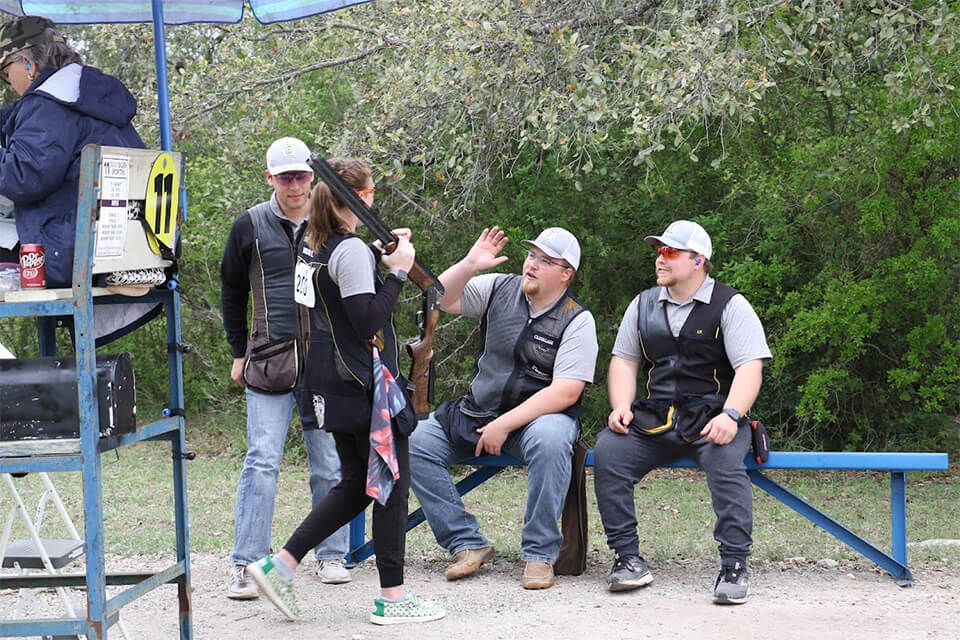
As you were looking at colleges and decided to go to Fort Hays, did you get recruited to shoot for the school ahead of time, or how did that come about?
I actually transferred to Fort Hays in Fall of 2023. When I was about to graduate from high school I went and visited the Nebraska College of Technical Agriculture in Curtis, Nebraska. I decided to go there and I got a scholarship for the shotgun team. Fast forward to my second year at NCTA, I decided I wanted to transfer somewhere else to further my education and I was pretty familiar with the collegiate shooting world so I went and talked to the Fort Hays coach and told them I was interested in shooting on their team the following year!
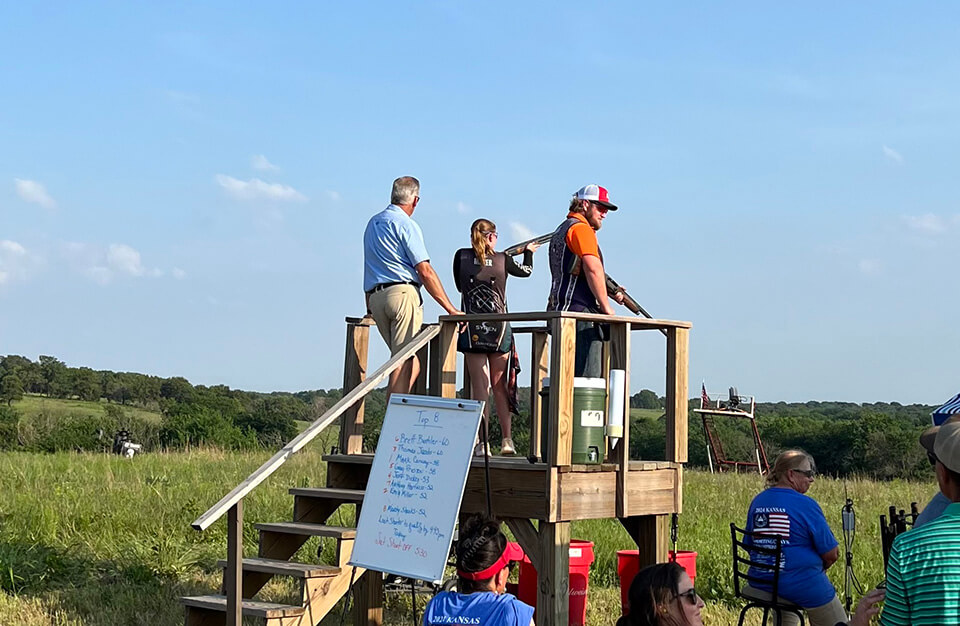
Balancing School & Athletics
Attending college, pursuing your degree and competing at a high level, these must require a fair bit of balance in your schedule. Can you tell us a bit about your routine and give us a look into the life of a collegiate shooter?
Having a balanced routine is critical for success in collegiate shooting. Collegiate shooters have to balance classes, homework, practice and competitions all at once. Going to class and getting good grades is important, because if you do not maintain a certain GPA, then you cannot be on the team. At Fort Hays, we are split into varsity and junior varsity (JV), Varsity practices on Tuesdays and Thursdays; JV practices on Wednesdays. We have competitions most weekends from August until November and then start up again in February to March. For some of the shoots, we leave Thursday and we are gone until late Sunday. That could mean missing quite a few classes, so having a good relationship with teachers and doing the work ahead of time is important when we are gone that much.
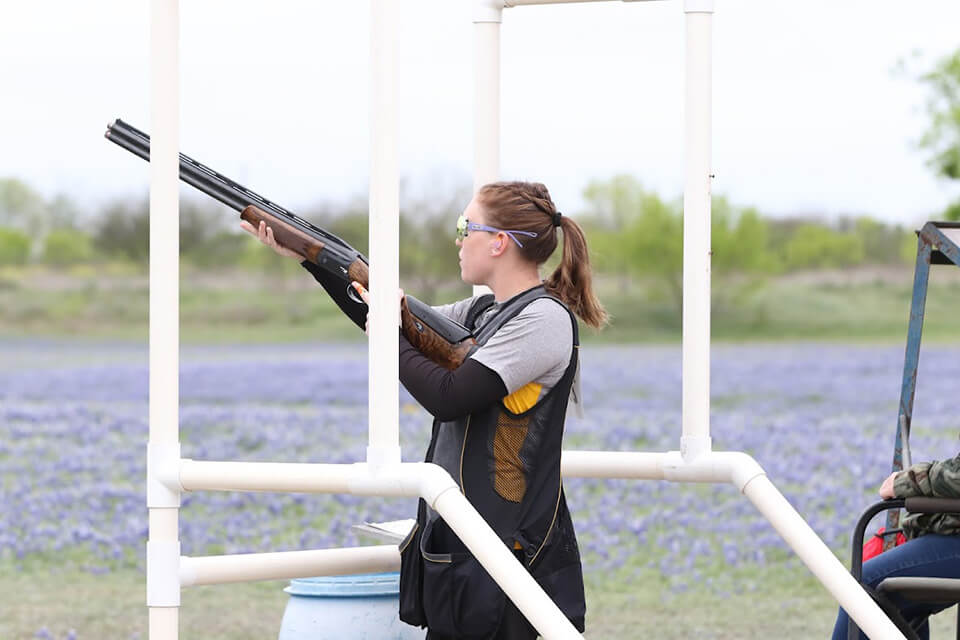
In most college sports, there’s a governing body or league that dictates the rules and schedules of the matches between other schools and divisions. Can you tell us a bit about how that is setup and what a typical schedule looks like for a college shooting team?
Some competitions are ACUI regional shoots, usually 450 targets shot Friday through Sunday. The rest of the shoots are put on by different collegiate teams; I would say these are usually 300 targets. All the competitions are set up differently with what we shoot, but there are six disciplines that we could shoot: American skeet, double skeet, American trap, double trap, sporting clays or super sporting.
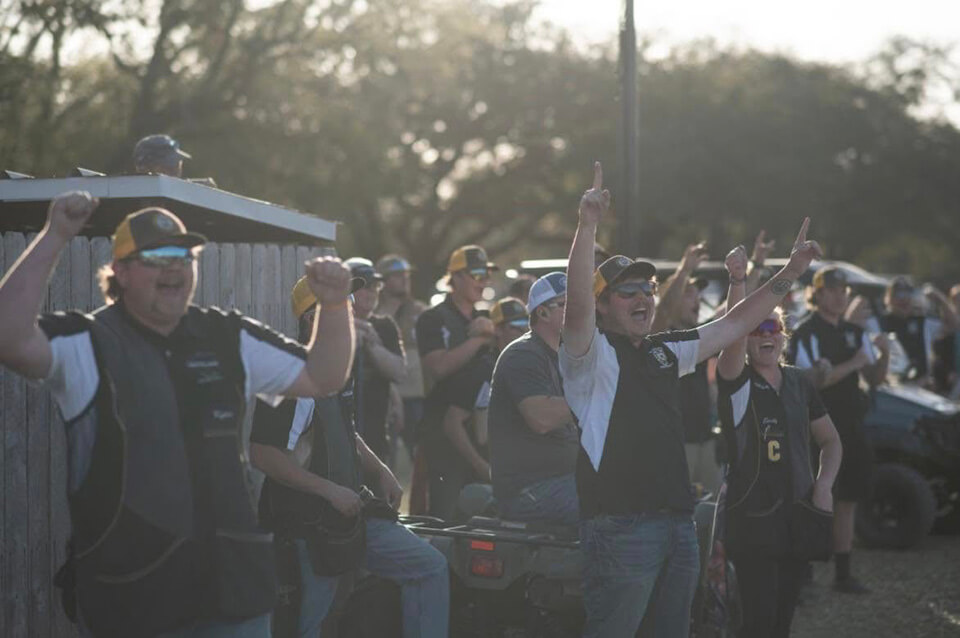
It must be fun getting to travel to different competitions with the team – especially considering the ups and downs of wins and losses. And even though the shooting sports has its individual accolades, you also have your team accolades as well. Give us a glimpse into that experience and any take-aways you’ve learned from it.
Seeing your team work as hard as they can, giving it their all and then seeing it pay off by winning a shoot or reaching a specific goal is always a great feeling. This past year we had a rough first semester, but that lit a fire under us and we pulled together as a team and really stepped up in the second semester. We win and lose as a team; it is not up to just one person to carry the weight, which can be hard to remember.

What’s a funny or a memorable story you can share from your college shooting experience?
One of the most memorable stories from my college shooting experience so far would be winning the team make-a-break competition at the 2024 ACUI nationals with some of my teammates. We can shoot qualifying scores all week and they take the top four team scores with the top five scores from individuals in the team for the shoot-off night. We were one of the last teams chosen for the shoot-off and we were excited. Our team ended up winning one round and then losing a round also, so then we had to shoot a third round for the tie breaker. During the tie breaker round at the end, we were tied with the other team going back and forth shooting 1 and 7 when one of the shooters on the other team ended up missing the number one target and we were the winners. There was so much cheering It was the most fun we have ever had.

Beyond Graduation – Advice for Aspiring Collegiate Shooters
After graduation, do you plan to continue on with the shooting sports and what do you envision as you transition into the next chapter of your life?
I still have one more year of college until I graduate. I am unsure of where the future will take me so far, but I am wanting to continue with shooting sports as much as I can.
Looking back at when you first got started, to where you are now, what are some of the biggest factors that helped you reach your goals and ambitions?
One of the biggest factors would have to be my passion and drive in the sport. Even when things get difficult, I push through and learn from my mistakes. Another huge factor would be having coaches that help me reach my goals, never giving up on me and pushing me to learn new things. I have had several coaches throughout my shooting career so far and all of them have taught me different things about myself and shooting. I would not be where I am today without the support of my coaches, family, friends, and sponsors.
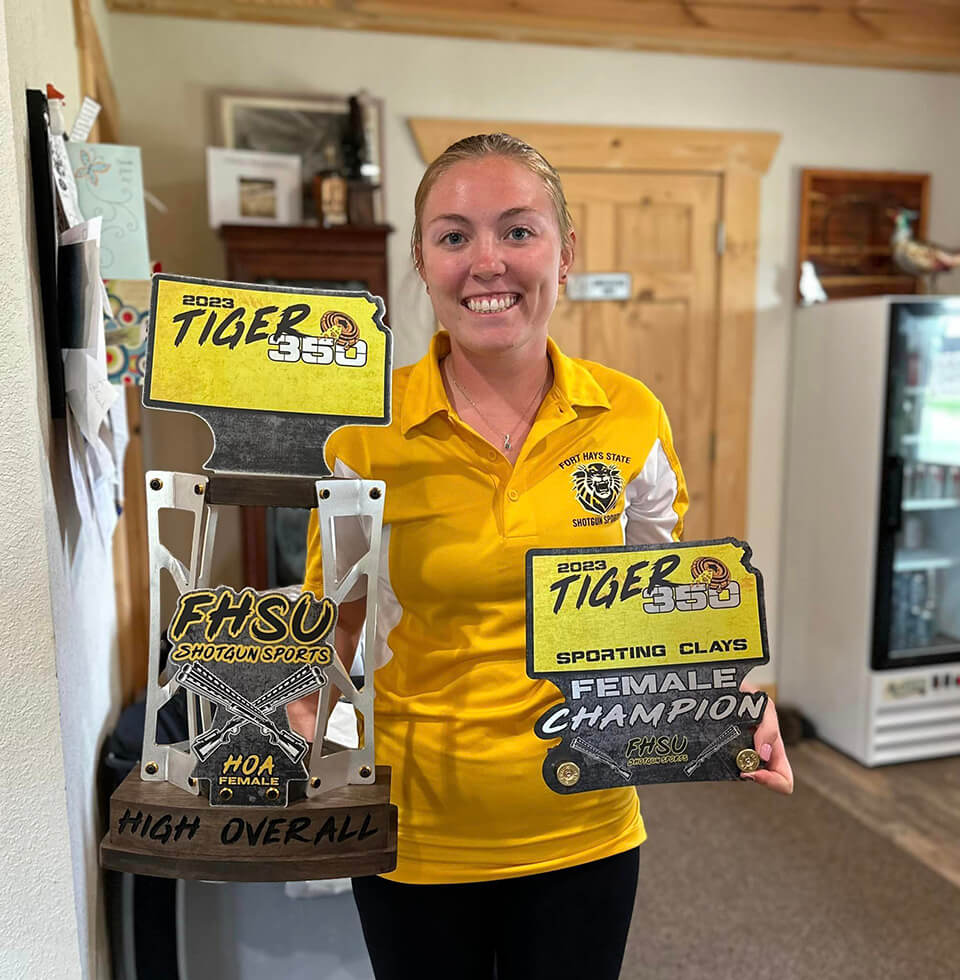
In closing, what advice or words of wisdom would you offer to aspiring young women who are considering getting into the shooting sports, or aspire to compete at the collegiate level?
Making sure you have a gun that fits you is always my number one, it will help tremendously. Go to some competitions and just have fun. Talk to some of the competitors there, some of my favorite people are from the shooting world. A lot of shooters would love to help more people get into the sport and help out where they can; ask questions! If you are interested in competing at the collegiate level, look up some schools that you are interested in and if they have a shotgun team, go talk to the coach. See how they run their team and requirements they may have, every team is a little different.

Additional Resources
If you would like to learn more about the various shooting programs, we covered a number of them from youth through college, and even Olympics in a previous article titled “How To Get Started In Youth Shotgun Sports.”
To learn more about Syren shotguns for Women, and how they can help you achieve your goals of competing at any level, explore the many options available here.
Enjoying this post? Read more just like it on our Syren Savvy Blog HERE.
*This article was originally posted in our column on WomensOutdoorNews.com written by Syren USA and edited by WON Publisher/Editor Barbara Baird.


